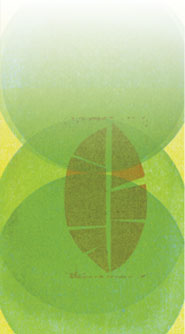

|
||
Cross Case Features: TeachersBeye High School: Social StudiesMarilyn Hunter, World HistoryMarilyn Hunter teaches World History at Beye High School. This is her third year teaching at Beye; formerly she taught middle school students. She completed the NCTA seminar in the spring of 2003. While other teachers talk about the need to teach to the state standards, Marilyn Hunter sees these standards as the bare “minimum,” and notes the need for exceeding their content, though the standards “set the pace.” According to Marilyn, the NCTA seminar opened her eyes so that she now teaches more “interesting” content, observing that she can expand on the content and incorporate more geography into her teaching. Prior to the seminar, Social Studies teacher Marilyn Hunter spent 30 minutes teaching about Japan in her World History course. Today, she assigns a three-unit block integrating culture, geography and history and uses primary source documents to allow her students to probe deeper into particular topics. Before the seminar, Marilyn taught about Taoism, Confucius, and Chinese philosophy “in isolation.” She now feels capable of talking about these topics in a more integrated way. Marilyn says that “teachers working individually with other teachers” is the main strategy for sharing and infusing Asia into the curriculum. In pursuing this strategy, she has collaborated with another Social Studies teacher/NCTA participant Kent Reimer to team teach their World History course. They talked to the principal, arranged to have a common planning period, and obtained support for their team teaching. Kent Reimer, World HistoryKent Reimer teaches World History at Beye High School. He has been teaching at Beye for about four years. He is a self-proclaimed “World War II history nut so Japanese history has always been something I’ve paid attention to.” Like fellow social studies teacher and NCTA participant, Marilyn Hunter, he sees the limitations of the standards in conveying any meaningful content about Asia to students: “Kids will walk away from [standards]-taught classes not understanding anything about China. It’s the minimum.” Citing his own need to move beyond the factoids required by the standards, he says, “I need to see the forest from the trees.” The NCTA materials are simple, clear, and well laid out for him to use in the classroom, according to Kent Reimer. Kent praises the way the seminar covered vast expanses of history with some very concise outlines. While he took the NCTA seminar this spring, Kent Reimer incorporated the materials into his social studies classes. This coming summer, he plans to redo what he teaches about China to incorporate more NCTA materials. He plans to use the NCTA outlines and give them to students as organizers for the class. Tara Sweeney, Social Studies Department Chair, World HistoryTara Sweeney has been teaching at Beye High School for about twenty years and has been department chair for the last eight years. She teaches ninth-grade World History. Prior to the NCTA seminar, she had no background in Asia ¾only an interest in learning more. Says Tara: “I’m a firm believer in admitting how much you don’t know.” Her motivation for taking the seminar? She had worked with the seminar leader, Gary Dressler, and knew that “I’d benefit in knowledge and teaching materials.” As the Social Studies department chair in a school with an international focus, Tara Sweeney is in a good position to promote Asian studies. And she is not afraid to “raise dirt” over issues she thinks are important to enhance student learning. According to her principal, Tara is somebody for NCTA to “keep involved ¾an experienced educator who has a vision for classroom instruction…a great resource for NCTA.” The principal says that Tara Sweeney is a prime example of how professional development should occur: “Learn it, bring it back, share it.” She has shared information about the seminar at a department in-service and has ordered materials that “make it easy” for teachers to infuse Asia. She says she focused on lesson plans, slides, and videos ¾“anything teachers can duplicate and use.” She worked with two other teachers in making decisions about what to order: criteria included “what we needed, based on the standards.” She says: “It all boils down to time...I have so much wonderful stuff that I can’t use.” Tara likes to teach history through stories. Before the seminar, she says she was only “teaching what I had to teach.” The impact of the seminar on Tara’s teaching has been gradual in terms of infusing Asia into her classes. She notes that “There’s not been any one great difference.” She has not changed the amount of time she spends on Asia; rather, it’s a “matter of weighing the priorities.” She credits the seminar with helping her to make content more interesting.
|
||
